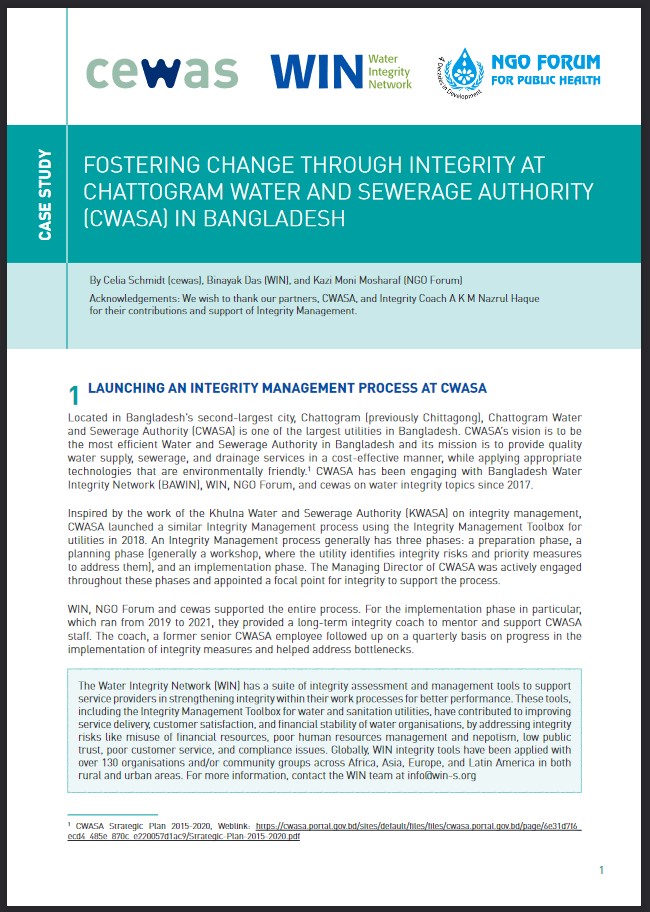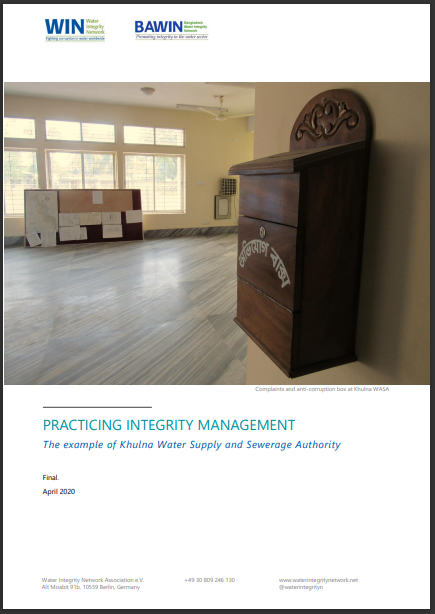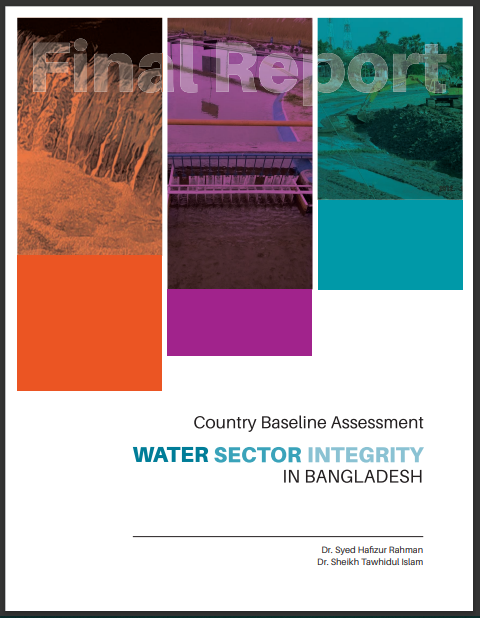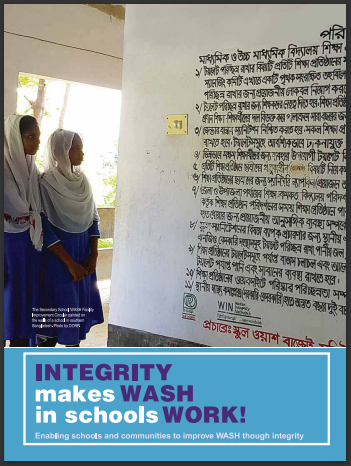Our
Case Studies

Chattogram Water And Sewerage Authority
Located in Bangladesh’s second-largest city, Chattogram (previously Chittagong), Chattogram Water and Sewerage Authority (CWASA) is one of the largest utilities in Bangladesh. CWASA’s vision is to be the most efficient Water and Sewerage Authority in Bangladesh and its mission is to provide quality water supply, sewerage, and drainage services in a cost-effective manner, while applying appropriate technologies that are environmentally friendly.1 CWASA has been engaging with Bangladesh Water Integrity Network (BAWIN), WIN, NGO Forum, and cewas on water integrity topics since 2017.
Preview
Practicing Integrity Management
The Khulna Water Supply and Sewerage Authority (KWASA) launched an Integrity Management process in 2015 with the support of WIN, BAWIN and cewas. This report documents KWASA’s experience as a public sector utility and examines how integrity management is contributing to improved performance and strengthened integrity. The utility has generated change not only within the company but also among consumers and civil society by building an awareness campaign and establishing interactive sessions bringing together KWASA staff members and customers.
Preview
Country Baseline Assessment - Water Sector Integrity in Bangladesh
This long due work on water integrity of Bangladesh is carried out under the auspices of BAWIN aiming to contribute in ensuring more improved water related service delivery processes for the people. The scope of the work includes identifying the disarray in water resources planning and development, inefficiency in legislative framework and institutional makeup, gaps in water administration and governance. Identifying these gaps, will help agencies to design and deliver actions to guarantee and foster a corruption free, transparent and accountable water services delivery process.
Preview
Brief Paper Integrity in School WASH
The poor state of WASH facilities in schools cannot only be attributed to limited resources. It is also due to a lack of awareness and poor accountability and participation. Legal responsibilities and obligations are not always well understood. There is also limited transparency on funding and few or poorly functioning channels for complaints. There is a risk that money for building or maintaining toilets is siphoned off or used for other purposes because of corruption.
PreviewMost Viewed:
- WASH
- Sanitation
- Urban Water Management
- Waste Management
- Irrigation
- Climate Change
- Social Accountability
Most Recent:
- Irrigation
- Climate Change
- Social Accountability
- WASH
- Sanitation
- Waste Management